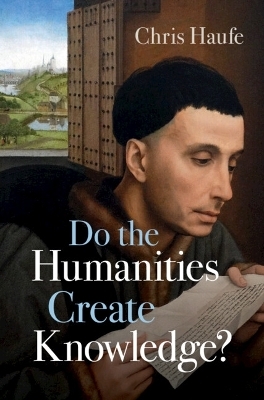
Do the Humanities Create Knowledge?
Seiten
2023
Cambridge University Press (Verlag)
978-1-316-51250-0 (ISBN)
Cambridge University Press (Verlag)
978-1-316-51250-0 (ISBN)
We often think of people as falling into one of two very different categories: those into science, math, and engineering; or into history, philosophy, and literature. Haufe reveals the unexpected unity underlying different disciplinary efforts to understand our experiences. He makes a vital contribution to wider debates about knowledge-generation.
There is in certain circles a widely held belief that the only proper kind of knowledge is scientific knowledge. This belief often runs parallel to the notion that legitimate knowledge is obtained when a scientist follows a rigorous investigative procedure called the 'scientific method'. Chris Haufe challenges this idea. He shows that what we know about the so-called scientific method rests fundamentally on the use of finely tuned human judgments directed toward certain questions about the natural world. He suggests that this dependence on judgment in fact reveals deep affinities between scientific knowledge and another, equally important, sort of comprehension: that of humanistic creative endeavour. His wide-ranging and stimulating new book uncovers the unexpected unity underlying all our efforts – whether scientific or arts-based – to understand human experience. In so doing, it makes a vital contribution to broader conversation about the value of the humanities in an increasingly STEM-saturated educational culture.
There is in certain circles a widely held belief that the only proper kind of knowledge is scientific knowledge. This belief often runs parallel to the notion that legitimate knowledge is obtained when a scientist follows a rigorous investigative procedure called the 'scientific method'. Chris Haufe challenges this idea. He shows that what we know about the so-called scientific method rests fundamentally on the use of finely tuned human judgments directed toward certain questions about the natural world. He suggests that this dependence on judgment in fact reveals deep affinities between scientific knowledge and another, equally important, sort of comprehension: that of humanistic creative endeavour. His wide-ranging and stimulating new book uncovers the unexpected unity underlying all our efforts – whether scientific or arts-based – to understand human experience. In so doing, it makes a vital contribution to broader conversation about the value of the humanities in an increasingly STEM-saturated educational culture.
Chris Haufe is the Elizabeth M. and William C. Treuhaft Professor of the Humanities and Chair of the Department of Philosophy, Case Western Reserve University. He is the author of How Knowledge Grows (2022) and Fruitfulness (2024).
1. Introduction; 2. 'What would the community think?'; 3. Canon and consensus; 4. Knowing what matters; 5. In defense of how things seem; 6. Reading what lies within; 7. Humanities victorious?; 8. Of interest; 9. The hoax and the humanities.
| Erscheinungsdatum | 02.09.2023 |
|---|---|
| Zusatzinfo | Worked examples or Exercises |
| Verlagsort | Cambridge |
| Sprache | englisch |
| Maße | 160 x 236 mm |
| Gewicht | 500 g |
| Themenwelt | Geisteswissenschaften ► Philosophie ► Erkenntnistheorie / Wissenschaftstheorie |
| Geisteswissenschaften ► Philosophie ► Metaphysik / Ontologie | |
| ISBN-10 | 1-316-51250-9 / 1316512509 |
| ISBN-13 | 978-1-316-51250-0 / 9781316512500 |
| Zustand | Neuware |
| Haben Sie eine Frage zum Produkt? |
Mehr entdecken
aus dem Bereich
aus dem Bereich
die Grundlegung der modernen Philosophie
Buch | Softcover (2023)
C.H.Beck (Verlag)
CHF 25,20
Buch | Softcover (2023)
Reclam, Philipp (Verlag)
CHF 9,80


![Was heißt Denken?. Vorlesung Wintersemester 1951/52. [Was bedeutet das alles?] - Martin Heidegger](/media/113619842)